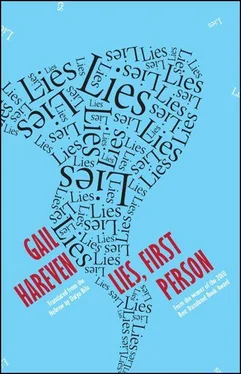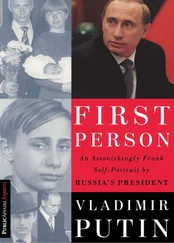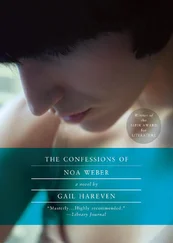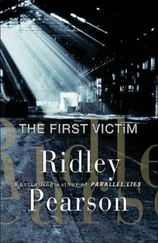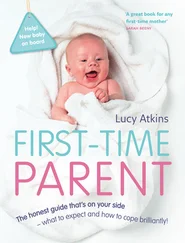The lecture ended abruptly. The mouth fell silent, and Not-man folded the sheet of paper at which he had hardly glanced. Later on I wondered if the members of the audience who were less alert than me had noticed that the speaker had failed to describe the “error’ he was supposed to talk about. The applause was rather weak: neither more nor less enthusiastic than that which had greeted the speakers who had preceded him. And nevertheless, about eighty people clapped their hands for him, in other words a hundred sixty hands moved and struck each other in his honor; in other words, the voice moved hands.
•
The moderator said that there was time for a question or two, and a dwarfish little old lady with hunched shoulders in a sleeveless dress stood up in the third row. Her English was poor and bad, but “Auschwitz” is not an English word, and there is no need for any great linguistic powers in order to say “mother,” “father,” “grandfather,” “grandmother,” “other grandmother,” “little brother,” and “six sisters.”
Her language failed her only when she insisted on trying to say something about each of the relatives she had mentioned, and the incoherent rush of words had to be taken apart and put together again in a sentence that made sense: Manya played the piano. Father believed in the progress of humanity. The little brother had connections with certain elements — even after the deconstruction and re-assembling it was impossible to know who they were — and when the Germans marched in he tried to contact them.
A murmur of impatience gradually spread through the hall. “She didn’t understand a word he said,” a young man complained in front of me, without lowering his voice.
The moderator came to the podium again, and stood to the right of the First Person in a demonstrative waiting position, but two or three more minutes passed before he interrupted the woman and asked her to come to her question, if she had one.
Only then she shifted to Hebrew and said: “I didn’t read the book, but in the newspaper it said that the esteemed professor lost his family in the Holocaust, and I would very much like to understand how a Jew. . how a Jew who went thought what you, sir, went through, can speak in the name of the Nazi monster and spread his propaganda.”
A sigh of disdain rose in front of me. And I thought: if only she had known English better, if only she had worn a more suitable dress, a dress with sleeves, if only. . it wouldn’t have made any difference.
Without losing his composure First Person waited for the moderator to translate the words he understood. He took off his reading glasses, put them in his jacket pocket, and in the patient and emphatic tone of a person obliged for the umpteenth time to reply to the same childish question, he replied that the horror affected all human beings insofar as they were human. And therefore, while in this case what was written in the newspaper was correct, he would say that his personal closeness to the subject was irrelevant to how the book should be judged. At the same time, he was also prepared to say that precisely because of his closeness to the subject — and such a closeness did in fact exist — precisely because of this, he possessed a particularly burning need to understand what — paraphrasing Faust—”what it is that holds evil up from inside.” And it was very important to him too, to point out that in opposition to the facile conclusion of a certain Hollywood movie to understand was not to forgive. A person could understand and not forgive, and sometimes people forgave only because they did not understand.
“I imagine that if I had succeeded in what I attempted to do, I would be judged differently. But when I myself look at the text today, it is clear to me that I failed miserably: the muse did not choose me. And I have no choice but to admit that in the end all my efforts and sacrifices resulted in a trivial work. I failed to solve the secret and added nothing to what my learned predecessors had already written. It appears that I am not the kind of artist I thought I was, and the limitations I refused to recognize, the limitations and the original sin of hubris, are the basis of my mistake. The task I undertook was too great for me. I still believe that one day a greater artist than me will enter the little breakthrough I achieved, and shed light on one of the greatest of human mysteries. But this evening I stand here before you and openly confess: I wrote a mediocre work, I wouldn’t hesitate to use the word “banal,” and this is without a doubt my fault, mea culpa.” He raised his hands and in an ancient, sickeningly familiar gesture he beat his breast. “Mea maxima culpa. This is my greatest fault.”
Not-man descended from the stage and took his seat in the first row. The moderator rose to introduce the next speaker, who asked us to watch with her part of the popular television program hosted by Oprah Winfrey: an interview with Elie Wiesel. But perhaps the Professor would like to say something beforehand? The speaker rose briskly to her feet, a plump, energetic young woman: not at all like the lady professor my imagination had sent to have dinner with my in-laws in that kosher restaurant on Keren Hayesod Street.
I took the yellow notepad, on which Oded had not written a single word, and wrote: “I’m going up to the Baradanshvilis. If you love me, please tell him that I want to talk, and bring him there.”
I was in desperate need of oxygen, but when I was already getting up I lingered for a moment more, and crossed out “if you love me” with two lines, and only then gave the pad back to Oded. The air was thick with First Person’s presence, my lungs urged me to leave, and I was in a hurry, my redaction was slipshod. He could still read what was written underneath it.
The Baradanshvilis gallery had opened a few months previously on the hillside opposite Mount Zion, right above the Cinematheque. I had met Lilly and Shabtai Baradanshvilis, a sculptor and a painter, during my research for Alice, and but for the demise of my pigtailed heroine I would have written about their place, and presumably succeeded in attracting a few more visitors to it.
They had a studio in Tbilisi that also served as a gallery and a club for the discerning. Artists and poets, students and members of the diplomatic corps — the Belgian consul himself accompanied by his mistress — would come and stay till morning: drinking tea, wine, and vodka, eating pastries and fruit whose taste surpassed anything to be found in Israel, and arguing about art and ideas. The finest artists had their first shows there, the best known were exposed to criticism. Those who had the money paid, those who were short of cash paid another time.
Lilly and Shabtai had succeeded in opening a gallery in Jerusalem, but their dream of renewing the nights of Tbilisi had not yet been realized. Optimistic, they cleaned the little inner courtyard adjoining the building, built a small pond for goldfish, planted orange trees and ferns in pots, and installed lighting, and when their preparations were completed, they returned to their sculpting and painting without losing heart, and kept on hoping for guests to arrive and make their dream reality.
There was not a hint of desert light in Shabtai’s abstract charcoal drawings, but when Alice was still sucking her pigtails, I planned to connect their studio to the monastery in the Valley of the Crucifixion, and to give the beautiful Lilly a secret relationship to Shotha Rusthaveli, who had composed his great epic there.
I intended to read The Man in the Panther’s Skin . I got hold of a copy, but everything that had happened, and what had happened to Alice, sentenced it to remain unread. And so the gallery-studio of the Baradanshvilis was doomed to remain in its desolation. As I climbed the steps leading from the Cinematheque, I noted this loss too.
Читать дальше
